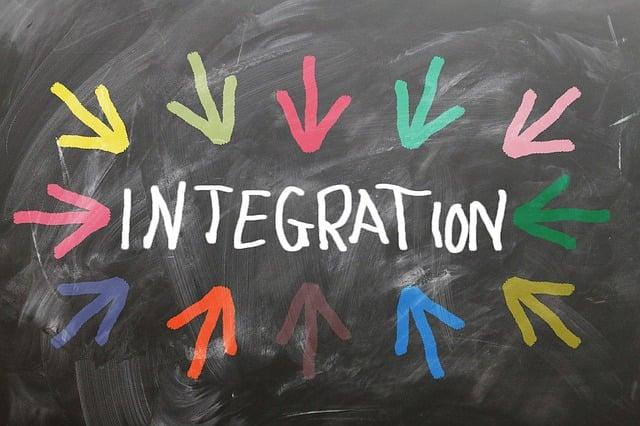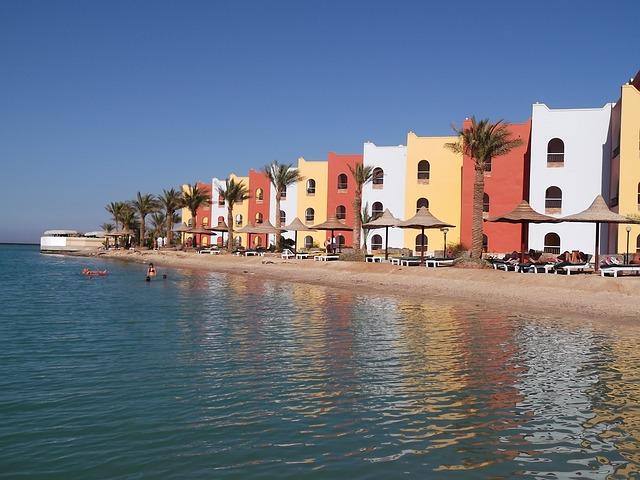In an ever-shifting global landscape, the journey of migration has become not just a passage across borders, but a complex tapestry woven with threads of hope, struggle, and resilience. For Pakistanis venturing beyond their homeland, the quest for better opportunities often encounters a maze of challenges and trends that shape their experiences abroad. As they navigate the intricate pathways of immigration—facing everything from legal hurdles to cultural adaptation—these individuals embody a rich narrative of aspirations and realities. This article delves into the current state of Pakistani immigration, exploring the multifaceted dynamics that influence their journeys and the broader implications for communities intertwined with global migration. Join us as we unravel the significant trends and hurdles that define the immigrant experience for Pakistanis around the world.
Understanding the Global Landscape of Pakistani Immigration
The global landscape of Pakistani immigration is shaped by a multitude of factors, reflecting the diverse aspirations and challenges faced by millions. Over the years, a significant number of Pakistanis have migrated for reasons ranging from employment opportunities and education to family reunification and political asylum. Key destinations include countries such as the United States, Canada, the United Kingdom, Australia, and the Gulf states, each offering distinct prospects and challenges. The demand for skilled labor in these regions often serves as a magnet for Pakistani professionals, particularly in fields such as IT, healthcare, and engineering. However, navigating these pathways can often prove complex, influenced by changing immigration policies and global economic conditions.
Moreover, the experiences of Pakistani immigrants can vary greatly depending on their circumstances, highlighting the need for specialized support systems. Many newcomers grapple with cultural adaptation, language barriers, and the acquisition of legal documentation to ensure their status is secure. A growing number of organizations and community networks have emerged to assist these individuals, providing crucial resources such as legal advice, job placement services, and cultural orientation programs. Below is a snapshot of the most common challenges faced by Pakistani immigrants today:
| Challenge | Description |
|---|---|
| Legal Documentation | Navigating the complexities of visas and residency permits. |
| Cultural Differences | Adjusting to new social norms and practices. |
| Employment Barriers | Difficulty in finding jobs that match qualifications. |
| Language Skills | The necessity to learn the local language for effective communication. |

Emerging Trends in Skilled Migration and Employment Opportunities
The landscape of skilled migration is evolving, influenced by technological advancements and shifting labor market demands. Countries are increasingly adopting merit-based immigration systems that prioritize skills and qualifications. For professionals from Pakistan, this presents both challenges and opportunities. As nations ramp up their search for skilled labor, specific sectors are showing burgeoning demand. These include information technology, healthcare, and engineering, where Pakistani professionals can find suitable openings that match their expertise and aspirations.
Moreover, the rise of remote working has blurred traditional geographical boundaries, allowing skilled migrants to tap into global job markets without strict residency requirements. This trend not only enhances flexibility but also increases competition among candidates globally. To thrive in this environment, it’s crucial for Pakistani job seekers to stay on top of emerging skills and certifications. Here’s a snapshot of some in-demand skills for various sectors:
| Sector | In-Demand Skills |
|---|---|
| Information Technology | Cloud Computing, Cybersecurity, AI & Machine Learning |
| Healthcare | Telemedicine, Nursing Specializations, Medical Research |
| Engineering | Data Analysis, Renewable Energy Technologies, Project Management |

Cultural Integration: Bridging the Gap in New Societies
In an increasingly globalized world, the migration journey for many Pakistanis involves not only relocating to a new country but also finding a way to thrive within it. Cultural integration plays a pivotal role in this process, as it helps bridge the gap between different traditions, languages, and social norms. By embracing the diversity around them, Pakistani immigrants can enhance their own identity while contributing to the fabric of their new society. Engaging with local communities, participating in cultural exchanges, and understanding societal values are vital steps in fostering a sense of belonging. Some effective methods include:
- Joining local cultural organizations to meet new people and share experiences.
- Learning the local language to facilitate communication and build relationships.
- Participating in community events that celebrate both local and Pakistani traditions.
Moreover, for successful cultural integration, it is essential for newcomers to navigate not just the societal landscape but also legal and financial systems that govern their lives in a new country. Educational programs can play a critical role by providing resources on local customs and legal rights. Support networks can also help in this transition, offering mentorship or guidance in areas such as employment and education. Below is a simple overview of important support structures:
| Support Structure | Description |
|---|---|
| Community Centers | Offer resources and activities for immigrants to connect. |
| Legal Aid Services | Provide assistance with immigration and settlement issues. |
| Language Learning Classes | Help improve communication skills essential for integration. |

Policy Recommendations for Strengthening Community Support Systems
To effectively bolster community support systems for Pakistanis living abroad, it is crucial to foster collaboration between government entities, non-governmental organizations, and local communities. Initiatives should focus on creating comprehensive community engagement programs that promote inclusivity and understanding among diverse populations. Some key strategies may include:
- Establishing cultural exchange initiatives that involve sharing traditions and practices.
- Creating mentorship schemes linking established immigrants with newcomers to assist in navigating local systems.
- Facilitating language and skills workshops to enhance employability and integration.
Moreover, enhancing accessibility to essential services—including legal aid, educational resources, and mental health support—is vital. Governments and organizations can achieve this by:
- Implementing mobile support units that reach underserved areas within immigrant communities.
- Partnering with local businesses to offer discounts or incentives for immigrants to utilize services.
- Strengthening outreach programs that provide information on rights, responsibilities, and community resources.
| Service | Description | Target Group |
|---|---|---|
| Legal Assistance | Providing guidance on immigration processes and rights. | New immigrants |
| Job Training | Offering vocational training tailored to local job markets. | Young adults |
| Healthcare Access | Connecting individuals to local health services. | Families |
In Conclusion
As we conclude our exploration of the intricate landscape of immigration for Pakistanis abroad, it becomes evident that this journey is marked not only by aspirations and opportunities but also by a myriad of challenges. From navigating bureaucratic hurdles to adapting to new cultures, the experience of Pakistani immigrants is as diverse as the individuals themselves.
The trends we have examined shed light on the evolving dynamics of global migration, influenced by factors ranging from economic shifts to geopolitical developments. With every challenge faced, there lies a story of resilience—a testament to the indomitable spirit of those who leave their homeland in search of a better future.
As we look to the future, the responsibility falls upon both governments and communities to create pathways that empower immigrants, ensuring their contributions are valued and their voices heard. The voyage of immigration is ongoing, with its peaks and valleys shaping not only the lives of individuals but also the cultural fabric of the countries they touch.
In this ever-changing landscape, the Pakistani diaspora continues to weave a rich narrative of adaptability and determination. With each new chapter, we are reminded that the journey is not merely about crossing borders, but about forging connections that transcend them. As we move forward, the lessons learned from these collective experiences can serve as a foundation for understanding and navigating the complexities of immigration in a globalized world.



